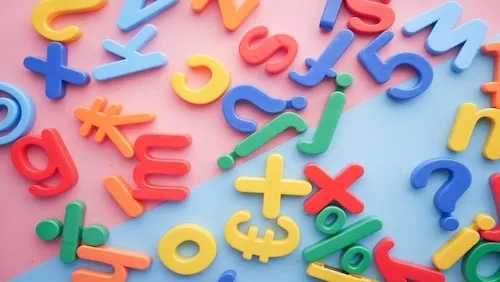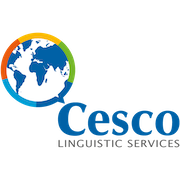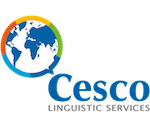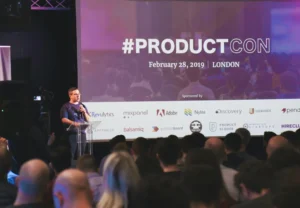- Home
- /
- Blog
- /
- Multilingual Events
- /
- How to Effectively Address...
How to Effectively Address Language Needs at Your Next Multilingual Event

- Have you ever found yourself grappling with the challenge of meeting the diverse language needs of your event attendees?
It’s frustrating when language barriers hinder engagement and undermine the success of your carefully planned event.
In our interconnected world, organizing multilingual events has become essential.
To create an inclusive and impactful experience, ensuring effective communication among attendees, presenters, and staff is crucial.
So, how can you effectively address language needs at your next multilingual event? Let’s delve into the strategies to help you create a seamless and enriching experience for everyone involved.
Related: Ensuring Exceptional Translation and Interpretation Services

Catalog Languages
The first step in accommodating the language needs of your event participants is to compile a comprehensive list of the languages spoken by your attendees, presenters, and staff.
It’s important to go beyond the obvious and include regional dialects or variations that can significantly impact communication.
Consider this scenario:
You’re organizing a conference on sustainable development with participants from various countries. In addition to the widely spoken languages like English, French, and Arabic, many attendees are fluent in Swahili.
Recognizing and cataloging these specific language needs ensures everyone feels heard and included throughout the event.
Related: The Hidden Pitfall of MLM Events: Bridging the Language Gap

Anticipate Language Services
Once you have identified the languages your event participants speak, it’s time to plan for the necessary translation and interpretation services.
This step is vital for facilitating effective communication and ensuring all attendees fully engage with the event’s content.
Related: Unlocking Global Markets: The Power of Professional Language Translation
Consider the following strategies:
Written materials: Prepare translated versions of important documents such as event agendas, speaker biographies, and handouts. Providing these materials in attendees’ preferred languages empowers them to access and understand vital information effortlessly.
Presentations: Encourage presenters to provide translated versions of their slides and any accompanying materials. This approach allows non-native speakers to follow along more easily and demonstrates a commitment to inclusivity and respect for diverse linguistic backgrounds.
Real-time interpretation: For live events, offering simultaneous interpretation services can be a game-changer. Imagine hosting a panel discussion where attendees can listen to it in their own language. Specialized equipment paired with professional interpreters can allow everyone to participate actively and fosters a sense of unity and belonging.

Allocate Resources
Properly allocating resources for language support is essential to ensure a smooth and seamless multilingual event experience.
This step involves determining the budget and personnel needed to facilitate effective communication.
Related: Strategies to Connect with Your Target Audience in Multilingual Events
Consider the following aspects:
Professional interpreters and translators: Depending on the complexity and size of your event, hiring professional language service providers may be necessary. Look for providers with experience in your industry and ensure they are well-versed in any technical terminology unique to your event.
Equipment: Investing in high-quality A/V and interpreting equipment, is crucial for clear communication during real-time interpretation. The last thing you want is distorted or unclear translations that hinder participants’ understanding and engagement.
Language support staff: Consider augmenting your team with additional staff, such as bilingual hosts or language-specific support teams. These individuals can provide language assistance and support throughout the event, ensuring attendees feel comfortable and well-cared for.
Related: How can Technical Writers Boost Collaboration with Language Service

Communicate Language Support
Finally, informing attendees about the language services available during the event is crucial.
Clear communication ensures that participants know the support and can fully utilize the resources.
Consider these communication strategies:
Simultaneous interpretation: Communicate which languages are supported and provide instructions on how attendees can access the service. You can share this information through event invitations, your website, and social media channels. Don’t forget to share the information in the languages that will be supported as well.
Translated materials: Inform attendees about the availability of translated documents and provide them with access points. This proactive approach empowers participants to engage with event materials and fully immerse themselves in the experience. Don’t forget about the registration page and any instructions!
Designated language support staff: Introduce a dedicated language support team that attendees can turn to for assistance. Having approachable individuals who can bridge the language gap and provide support enhances attendees’ sense of comfort and inclusion. Consider color coded badges or a centralized language hub where attendees can go for help.
Related: Budget-friendly translation solutions for law firms
Conclusion
By meticulously assessing language needs and embracing the innovative strategies presented in this article, you can transform your event into a genuinely inclusive and welcoming space for participants from all linguistic backgrounds.
Prioritizing multilingual communication goes beyond merely enhancing the event experience; it actively cultivates an environment of empathy, cross-cultural appreciation, and collaboration that unlocks the full potential of your diverse audience.
Remember, every language barrier you break down brings you one step closer to fostering meaningful connections and facilitating knowledge exchange among your attendees.
Investing in effective language support creates an event that transcends cultural boundaries and leaves a lasting impact on participants’ lives.
So, are you ready to embrace the power of multilingual communication and unlock the true potential of your next event? The choice is yours.
Related: Defining Your Multilingual Event Objectives for Success
 Cesco Linguistic Services was founded on August 4, 2004. Our passion is to facilitate Human-to-Human understanding in meaningful and rewarding ways through the power of language. We excel at providing expert & timely customized language solutions for organizations of all sizes. The name Cesco (pronounced “Chesco”) comes from the founder’s firstborn son Francesco, whose birth coincided with the year the company was founded.
Cesco Linguistic Services was founded on August 4, 2004. Our passion is to facilitate Human-to-Human understanding in meaningful and rewarding ways through the power of language. We excel at providing expert & timely customized language solutions for organizations of all sizes. The name Cesco (pronounced “Chesco”) comes from the founder’s firstborn son Francesco, whose birth coincided with the year the company was founded.





